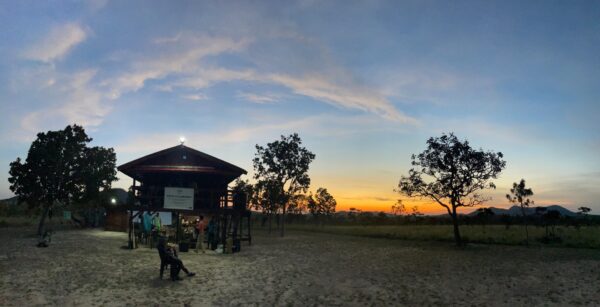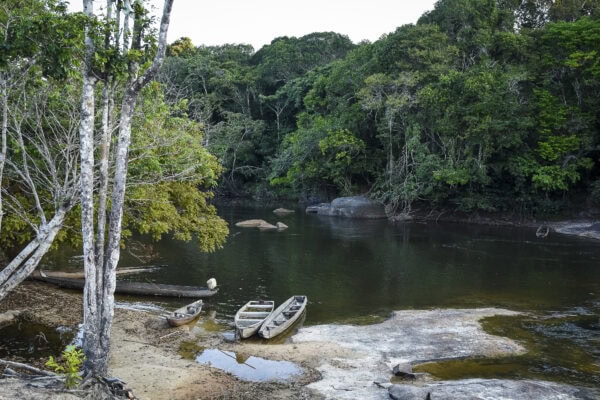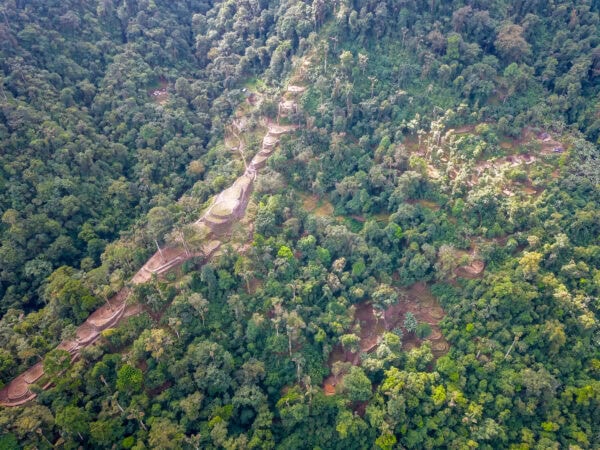When thinking about where and when to invest, we look closely at windows of opportunity, during which our engagement can have an outsized and catalytic impact. Such a window presented itself to us this spring in Colombia.
In fall of 2016, President Juan Manuel Santos and the Revolutionary Armed Forces of Colombia (FARC) signed a long-awaited peace deal, closing the door on a half-century long conflict that displaced more than 5 million people and claimed the lives of more than 200,000. The peace deal set in motion a series of positive developments for the nation, including what President Santos has termed “dividends of peace” — opportunities to protect, for the first time, a vast trove of biodiverse landscapes containing unique flora and fauna that had previously been inaccessible due to the FARC’s presence.
However, it also exposed Colombia’s 1.5 million indigenous people and their territories to some potentially unintended risks. Farmers, loggers, miners, and internally displaced persons are entering previously FARC-occupied lands, such as in the Putumayo Department, and posing a threat to the property rights of indigenous populations who live there.
Securing the property rights of indigenous peoples will be critical to securing their continued autonomy and territorial integrity of their land. Without secure property rights, these communities and their lands are left vulnerable to potential exploitation, deforestation, unregulated resource extraction such as illegal gold mining, and land conflict.
In recent years, Colombia has established Indigenous Reserves to help these communities achieve financial and political autonomy. However, significant barriers remain:
- 80 percent of these communities do not have the basic maps necessary to apply to become an Indigenous Reserve. Their land often lacks proper demarcation, as remote locations can be difficult to survey and map.
- Colombia’s government struggles with mapping and registering reserves at pace, as evidenced by the backlog of 700 reserve applications in its National Land Agency.
- If and when their property rights are secured, many of these communities lack the financial management and governance skills needed to exercise their rights.
These challenges are why we invested in the Amazon Conservation Team (ACT), an NGO that has worked for the last 20 years with indigenous communities in Colombia to help them protect their lands, resources, and cultural heritage. Today, the organization is working hand-in-hand with the Government of Colombia to protect 32 million hectares of indigenous lands, spanning more than a fifth of the country.
ACT’s approach to conserving the Amazon not only has the potential to help local communities, but also to serve as a model to be replicated in other challenging contexts and environments. This includes helping communities develop internal governance mechanisms so they are able to best use the resources that come to them as a result of this recognition.
Over the next two years, ACT’s team of lawyers, cartographers, ethno-botanists, sociologists, and GIS experts will take advantage of a unique political window of opportunity to help the Government map and register 31 Indigenous Reserves, securing the rights of more than 300,000 indigenous people. They will continue to act as a trusted partner to both the Government and to local communities by helping prepare pre-requisites and applications, and mapping remote areas that the Government does not have resources to access.
ACT will also pilot new technologies — specifically, drone mapping — in order to dramatically ease the process of mapping impenetrable jungles and other challenging terrains. Critically, ACT will equip indigenous communities with the tools, technology, and knowledge required to continue these self-empowerment processes, allowing them greater agency and opportunity moving forward.
When we make investment decisions, particularly in sensitive political contexts, we look carefully at an organization’s reputation and ties to the geography in which it works. In this case, success will hinge on having the full trust of both the indigenous communities and the Government of Colombia. ACT has already proven highly successful in this regard, receiving global recognition this week in Washington, D.C. with Colombia’s President Santos and leaders of the Murui-Muina, Kametza, Kogi and Arhuaco tribes for establishing and expanding indigenous reserves in the Amazon, Sierra Neva de Santa Marta, Putumayo, and Caqueta.
We look forward to supporting ACT’s continued work of empowering indigenous communities in Colombia through innovative partnerships and technology, seizing a critical window of opportunity to protect their property and ensure their self-determination.
Media Relations
For press release inquiries, please contact us at info@amazonteam.org.
Related Articles
Share this post
Bring awareness to our projects and mission by sharing this post with your friends.




